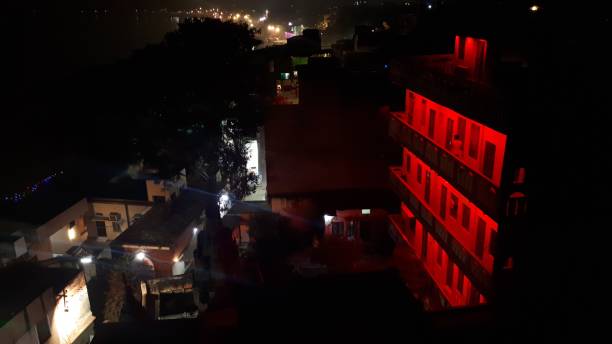Noise Pollution and Illegal Activities in Pipeline Clubs Amid Residential Families.
Noise Pollution and Illegal Activities
Geoffrey Mosiria, the Chief Officer of Environment in Nairobi County, highlighted the challenges posed by noise pollution, illegal constructions, and unlawful excavations at night. The county’s customer care center receives numerous complaints between 7 PM and 7 AM, mostly concerning loud music from bars and clubs in residential areas like Roysambu.
The situation is severe in some locations, such as a place called Cowash, where bars operate in open spaces, with amplified music disrupting families living nearby. Children, elderly residents, and workers are unable to rest due to the disturbances. In some cases, people have even set up bars on roadsides, further worsening the situation.
The Impact of Alcohol and Broken Families
Mosiria emphasized the negative influence of alcohol, sharing that he had been sober for three years. He pointed out that bars are not just places for drinking but also hubs for drug abuse and other illegal activities. Many marriages have crumbled due to alcoholism, with men often engaging in extramarital affairs in bars. He noted a troubling trend where young women prefer relationships with married men since such men provide financial support without demanding accountability. This has contributed to the breakdown of family structures.
The Role of Women in Family Stability
Mosiria argued that a wife plays a crucial role in shaping her husband’s character and ensuring a successful marriage. While a man is responsible for providing for his family, a wife manages household finances, ensuring bills are paid and children’s needs are met. He shared personal insights, explaining that while his salary account is separate, his wife has her own savings. He observed that women tend to save money better than men and often come through during financial difficulties.
Brothels and Strip Clubs in Pipeline
Pipeline, a densely populated area, has several strip clubs and brothels operating within the same buildings where families reside. Some clubs even have rooms on the upper floors where patrons engage in illicit activities. When asked about the legality of strip clubs in Kenya, Mosiria avoided commenting directly, stating that he is not involved in licensing such establishments. However, he acknowledged encountering these venues during inspections related to noise complaints. He mentioned that his first direct encounter with a live-action strip club happened unexpectedly while responding to a complaint.
Moral Concerns and Future Actions
Mosiria expressed concerns about the increasing normalization of immoral activities, particularly women walking around inappropriately dressed within estates. He stressed that such behavior negatively impacts young children and contributes to moral decay. He warned men who abandon their families to frequent these establishments that authorities will address not only the noise pollution but also family-related issues.
Read Also: Kenya Among Eight Countries Facing ARV Shortages as Donor Funding Halts
Personal Reflections and Final Thoughts
Reflecting on his high school days, Mosiria described himself as a student who always advocated for doing things the right way. He shared that his guiding principle has always been serving both God and the people with integrity. He expressed a renewed commitment to addressing societal issues, ensuring order, and promoting positive change.
The interview concluded with gratitude towards Mosiria for his efforts in tackling environmental and social issues. The host appreciated his time and dedication, wrapping up with encouragement for viewers to take responsibility for their communities.
Noise Pollution and Illegal Activities in Pipeline Clubs Amid Residential Families.



